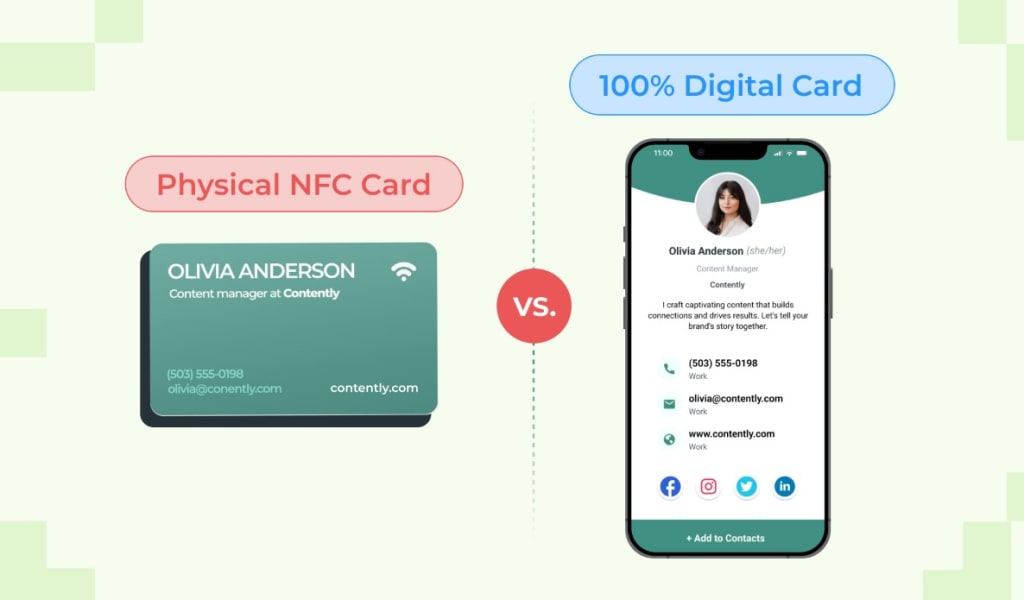Understanding the Distinctions Between NFC Business Cards and Digital Business Cards
NFC Business Card VS Digital Business Card

Introduction:
In the digital age, traditional paper business cards have evolved into more innovative and tech-savvy alternatives: NFC business cards and digital business cards. These modern solutions offer greater interactivity and convenience for sharing contact information and content. In this article, we will delve into the key differences between NFC business cards and digital business cards, exploring their respective features, advantages, and disadvantages.
1. NFC Business Cards:
NFC business cards utilize Near Field Communication technology, which involves embedding a small NFC chip into the physical card. When tapped on an NFC-enabled device, such as a smartphone or tablet, the card transfers digital information instantly. NFC cards offer a seamless and contactless data exchange, making them an attractive option for tech enthusiasts and professionals looking for a novel way to share their details.
Advantages:
a. Quick and Easy Sharing: With a simple tap, users can instantly transfer their contact information and other digital content to compatible devices, saving time and effort.
b. Customizable Content: NFC business cards can store various digital content like website links, social media profiles, and multimedia, allowing for a more interactive experience.
c. Modern and Innovative: The use of NFC technology sets these cards apart, making them stand out in a sea of traditional paper business cards.
Disadvantages:
a. NFC-Enabled Devices Required: For successful data exchange, recipients need to have NFC-enabled devices, limiting the card's functionality in certain situations.
b. Higher Cost: NFC business cards generally come at a higher price point than traditional paper cards, which might be a consideration for budget-conscious individuals or businesses.
c. Limited Storage Capacity: The amount of information that can be stored on the NFC chip is limited compared to digital formats.
2. Digital Business Cards:
Digital business cards, on the other hand, are virtual representations of traditional business cards shared electronically. They can take various forms, such as vCards, mobile apps, or websites designed specifically to act as digital business cards.
Advantages:
a. Easy and Versatile Sharing: Digital business cards can be shared through email, messaging, QR codes, or any other digital means, eliminating the need for physical exchanges.
b. Rich Media Elements: Users can incorporate multimedia content, such as videos, animations, and interactive elements, to make their cards more engaging and informative.
c. Environmentally Friendly: By reducing the use of paper, digital business cards contribute to a more sustainable approach to networking.
Disadvantages:
a. Digital Means Required: To share a digital business card, both parties need to have access to digital communication channels, which might not always be the case.
b. Audience Preference: Some individuals may still prefer physical business cards in specific situations or cultural contexts.
c. Compatibility Issues: Recipients might need specific software or apps to view and save the digital card properly.
Conclusion:
NFC business cards and digital business cards offer innovative ways to share contact information and digital content, catering to different preferences and situations. While NFC business cards excel in contactless data exchange and a futuristic appeal, digital business cards provide versatility and rich media elements for a more engaging experience. Ultimately, the choice between the two depends on individual preferences, the target audience, and the specific context in which they are used.





Comments
There are no comments for this story
Be the first to respond and start the conversation.